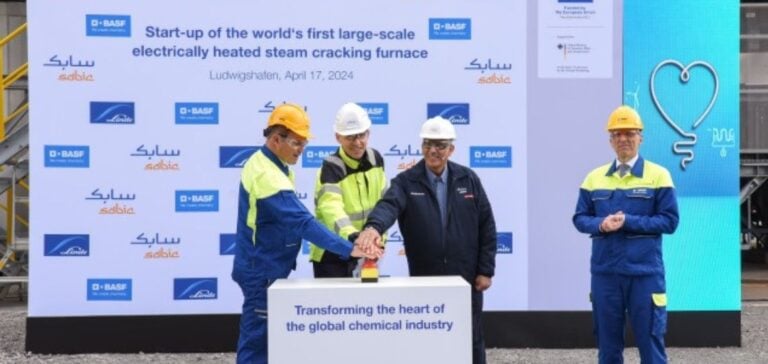A major step towards reducing CO2 emissions was taken when BASF, SABIC of Saudi Arabia and Linde inaugurated a demonstration plant for steam-electric cracking furnaces in Ludwigshafen. This pilot plant is the first in the world to use electric heating for steam cracking, a crucial technique in the production of basic chemicals. The partners have developed this technology to demonstrate that it is possible to produce olefins such as ethylene and propylene continuously from renewable sources of electricity, thus replacing natural gas with electricity.
Details of installation and capacity
The experimental site, integrated into BASF’s existing facilities in Ludwigshafen, uses two heating concepts in its furnaces: direct heating, where electric current heats the reactor tubes directly, and indirect heating with radiant elements. These methods could reduce the chemical industry’s CO2 emissions by 90% compared with current techniques.
Project funding and support
The project received €14.8 million in funding from the German Federal Ministry of Economics and Climate Action, as part of its industrial decarbonization program. This support is designed to help energy-intensive industries in Germany achieve carbon neutrality.
Future implications and technological development
The results of this demonstration plant will be essential for the technology’s eventual development towards industrial maturity. Linde plans to market the technologies developed under the new STARBRIDGE™ brand, aimed at decarbonizing the petrochemical industry by replacing conventional technologies.
BASF, SABIC and Linde’s steam cracking demonstration plant in Ludwigshafen represents a significant innovation for reducing emissions in the chemical industry, with the potential to transform traditional production methods.






















